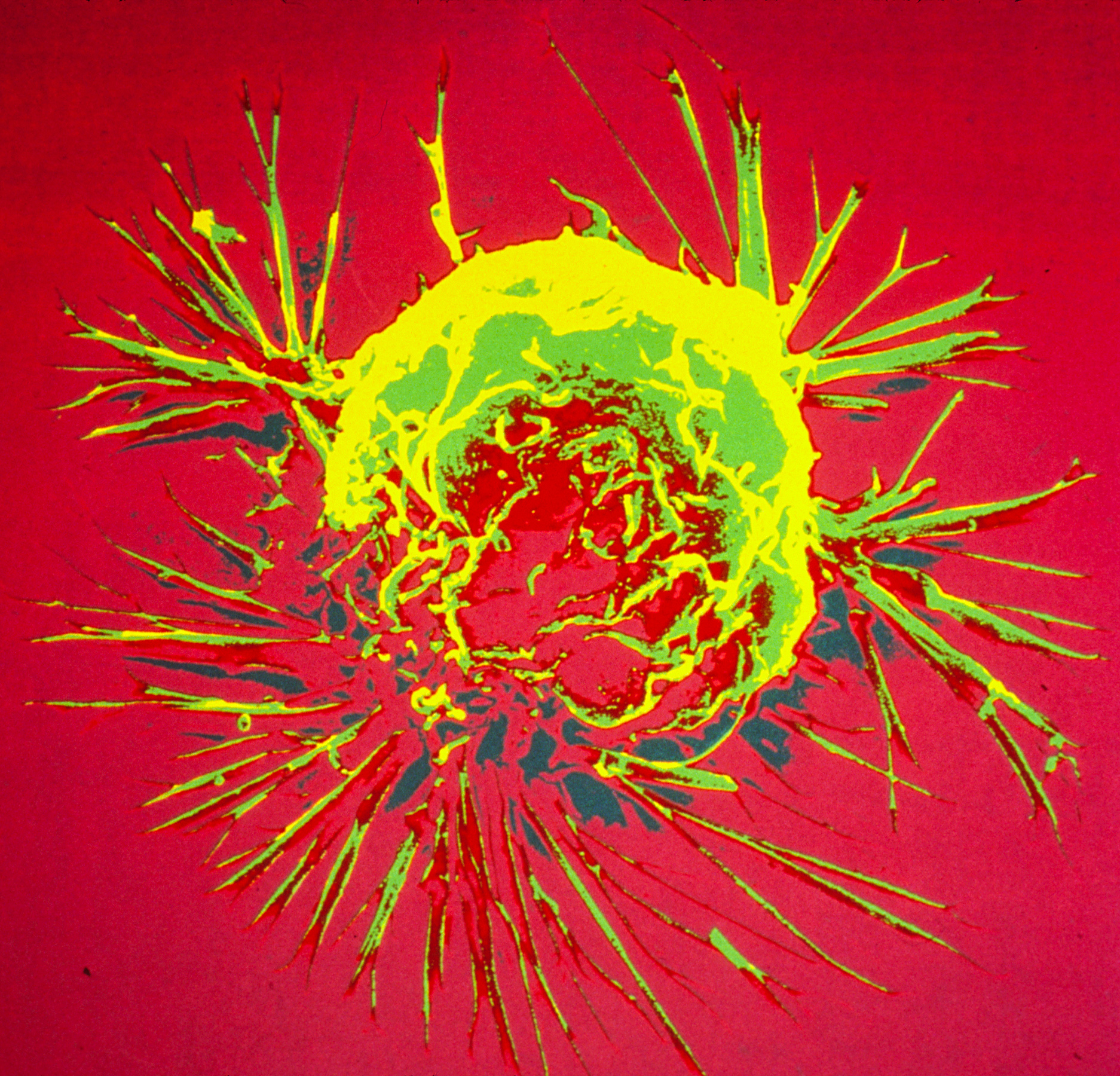 Most forms of breast cancer can originate from a single type of cell in the breast suggesting that cancer-causing mutations are more important than previously thought, according to new research.
Most forms of breast cancer can originate from a single type of cell in the breast suggesting that cancer-causing mutations are more important than previously thought, according to new research.
Scientists at The Institute of Cancer Research, London, found that different cancer-causing mutations in luminal breast cells caused mice to develop tumours consistent with all major forms of breast cancer, while basal cells tended to form only a rare form of the disease.
The findings could have implications for identifying different types of breast cancer and treating patients with the disease.
The study, published in the Journal of Pathology, was conducted at The Institute of Cancer Research (ICR) with Cardiff University’s European Cancer Stem Cell Research Institute, and was supported by Breakthrough Breast Cancer and Cancer Research UK.
ICR scientists removed the genes BRCA2, p53 and/or PTEN from basal and luminal breast cells in mice, genes known to be involved in breast cancer formation, to determine how genetic mutations drive tumour growth in different cells-of-origin.
The researchers found that tumours originating from luminal cells formed tumours from a range of subtypes depending on the initiating mutation, whereas basal cells formed only a rare type of breast cancer called adenomyoepithelioma. Surprisingly, although the luminal cells lacked a key receptor on their surface that is involved in driving some breast cancers, known as the oestrogen receptor (ER), they were able to generate breast cancers that were ER positive.
Almost a third of tumours originating from luminal ER- cells were categorised as ‘basal-like’ triple-negative breast cancer, a common and hard to treat form of the disease. This was unexpected because basal-like breast cancers were thought to develop from basal mammary cells, but this research suggests that they can develop from luminal cells.
Breast cancer kills over 10,000 people in the UK every year, but it is not one disease and it can affect everyone differently. Not all breast cancer treatments are effective for all types of the disease, such as ER- breast cancer, which does not respond to hormone treatment. Doctors need better ways to identify what type of breast cancer a patient has in order to decide which treatment is the most likely to work.
First author of the study, Dr Lorenzo Melchor, Post-Doctoral Training Fellow in Molecular Haematology at The Institute of Cancer Research, London, said: “Our findings show that multiple forms of breast cancer can originate from a single cell type, which could have implications for how we target and treat the disease.
“This study increases our understanding of the origins of the diversity seen in breast cancer, and demonstrates that both the initiating mutations and the cell of origin are important in breast cancer development, which could help us to target treatments to those patients where it will do most benefit.
“Using new mouse models, we found that basal mammary cells tended to form a rare type of breast cancer, irrespective of the genetic mutation, while mutations in oestrogen receptor negative luminal cells were able to generate the broad spectrum of disease subtypes seen in humans, including both oestrogen receptor positive and negative breast cancers.
“It can be hard to disentangle the complex relationship between the genetic mutations driving cancer, the cells these mutations form in, and the cancer subtypes that result, but we have shown that the initiating mutation plays a bigger role in dictating how breast cancer develops than we previously thought.”
